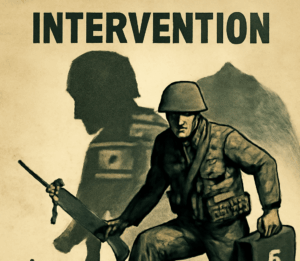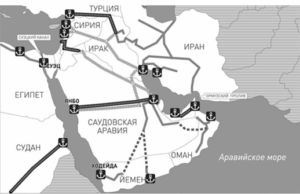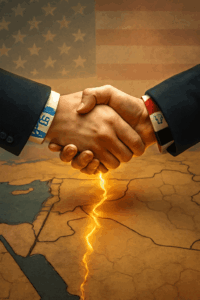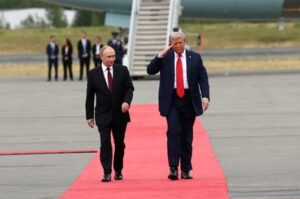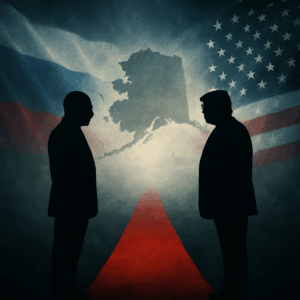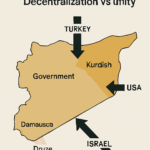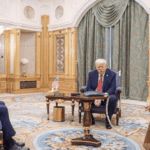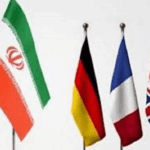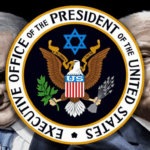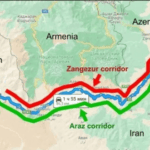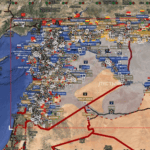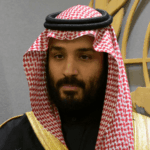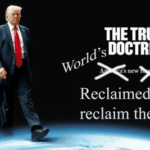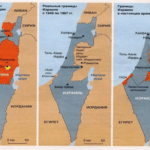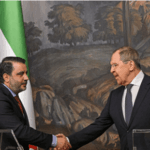The Syrian people rose up against the power-state, and this power-state is not a true state. It is a system ruled by an absolute dictator, built on tribal nepotism and a sectarian security apparatus, with sham presidential elections that constitutionally require the candidate to be Muslim, fraudulent parliamentary elections, and systematic violence perpetrated by the regime and its sectarian entourage against the majority.
Then the unexpected happened: Islamist opposition forces led by Ahmad al-Shara' toppled the power-state regime, while the dictator and some of his henchmen fled to Russia. Al-Shara' then formed an ideological army from the armed Islamist factions that had controlled Idlib, transferring Idlib's governance to the capital as authority over all of Syria.
Thus, we have transitioned from a power-state to another power-state, with the crucial difference that the new regime is built upon a Sunni tribal foundation, whose long-suppressed sentiments have now erupted against anyone daring to challenge the new authority.
However, there are three groups that fundamentally reject this authority in its current form: the Kurdish minority, Alawite minority, and Druze minority. Although the Kurdish minority belongs to the Sunni majority, while the Alawite and Druze minorities belong to the Arab majority. Thus, these minorities are part of both the Sunni and Arab majorities, and the same applies to Christians belonging to the Arab majority, with the exception of Armenians.
This, in brief, is the Syrian situation without complications. Yet this simple, clear situation has generated a complexity that some are attempting to simplify.
How did this complexity emerge?
Since the revolution was fundamentally directed against the power-state, the alternative should have been a transition to a state and state authority, rather than a shift from one power-state to another, even if the new power-state enjoys the support of the Sunni majority.
The new alternative state must be a state of citizens, equal in rights and duties.
Equal rights and duties are defined by the constitution, which explicitly states: "All Syrian citizens are equal in rights and duties regardless of religious or ethnic affiliation."
This principle directly leads to the establishment of state authority through free and fair elections based on political and civil diversity, with complete independence of governmental administrative institutions.
Suppose the political system is republican, following the American or French model. In that case, citizenship rights would allow any Syrian, regardless of religion or ethnicity, to run for the presidency of the republic. Under no circumstances may this right be revoked.
And if we think logically: Why should the constitution stipulate that the president must be Muslim, when Muslims make up ninety percent of the population? If the constitution clearly defines the president's powers and accountability to parliament, etc., then why specify the president's religious affiliation?
The same applies to the parliamentary system of government following the English model.
However, achieving such state authority is an extremely complex task, and it is not so simple in a country devastated politically, economically,
Let us take, for example, one of the fundamental principles of the state - the monopoly on violence. What are the means to achieve this principle when there are overt and covert armed militias supported by external forces on one hand, and non-recognition of the power-state which rhetorically seeks to transition to state authority on the other? Solving this complexity is no easy task. And the tragedy in As-Suwayda stands as evidence of this.
The truth is that the proclamation of the first Syrian state on March 8, 1920, at the Syrian Congress held in Damascus, represents an experience that can be relied upon.
At that time, there were representatives from all Syrian cities from Deir ez-Zor to Jaffa.
And the truth is that seeking a fair mechanism to convene a Syrian congress with representatives from all provinces of the country to discuss issues of the state, state authority, state institutions, and the monopoly on violence is an idea that can be subject to dialogue and requires urgent discussion.
But there is an extremely complex problem that is difficult to simplify: overcoming the destruction of values that occurred over decades and weakened national and moral belonging, because overcoming destroyed values and the violent mentalities they produced, which deny the other, requires much time.
Syria's transition from a power-state to a democratic state and state authority will not and cannot occur through an armed conflict between the civil, peasant, and Bedouin Sunni majority supporting the new authority on one side, and peasant minorities not recognizing the new authority on the other. This is only possible through an urban mentality based on political dialogue among elites of all components of Syrian society, grounded in the values of rights recognition, equality, and citizenship.
And I swear by life, the formation of Syrian elites free from narrow affiliations into a historical bloc that defends the future and the construction of a democratic state will have a positive and honorable influence on achieving this goal.
Dr. Ahmad Barqawi
The author's opinion does not reflect the position of the Russian Federation. This text is an analysis of the Syrian conflict.

